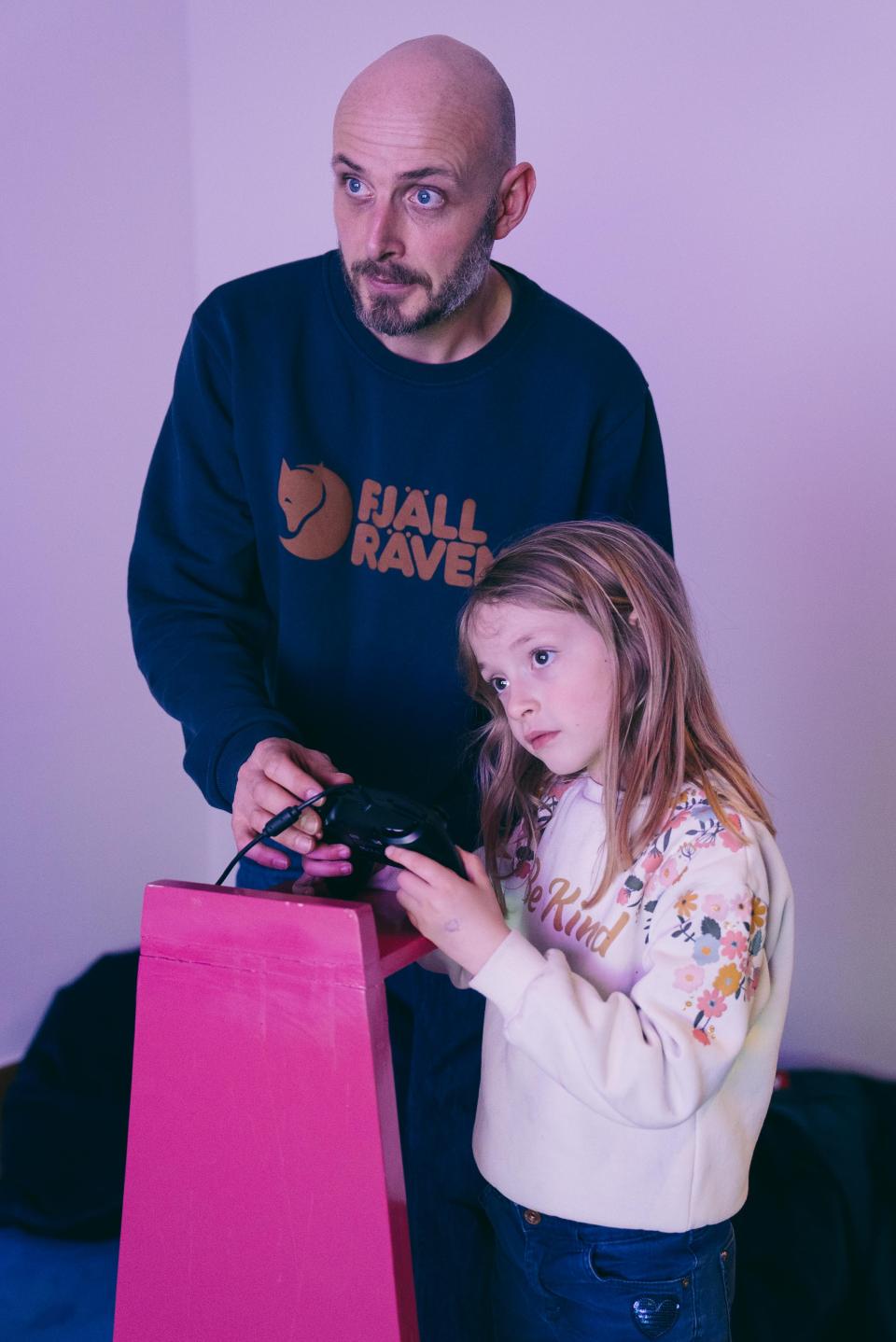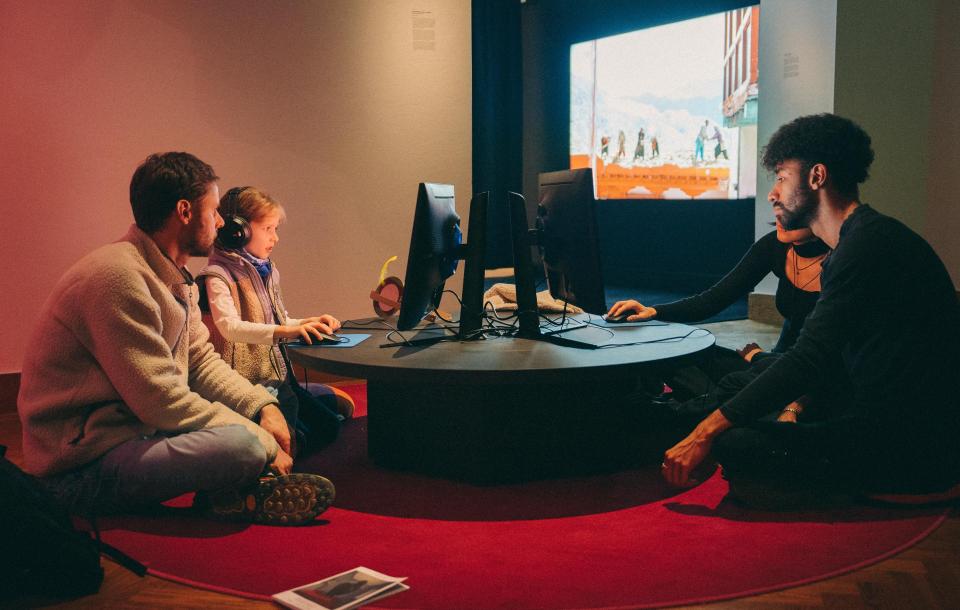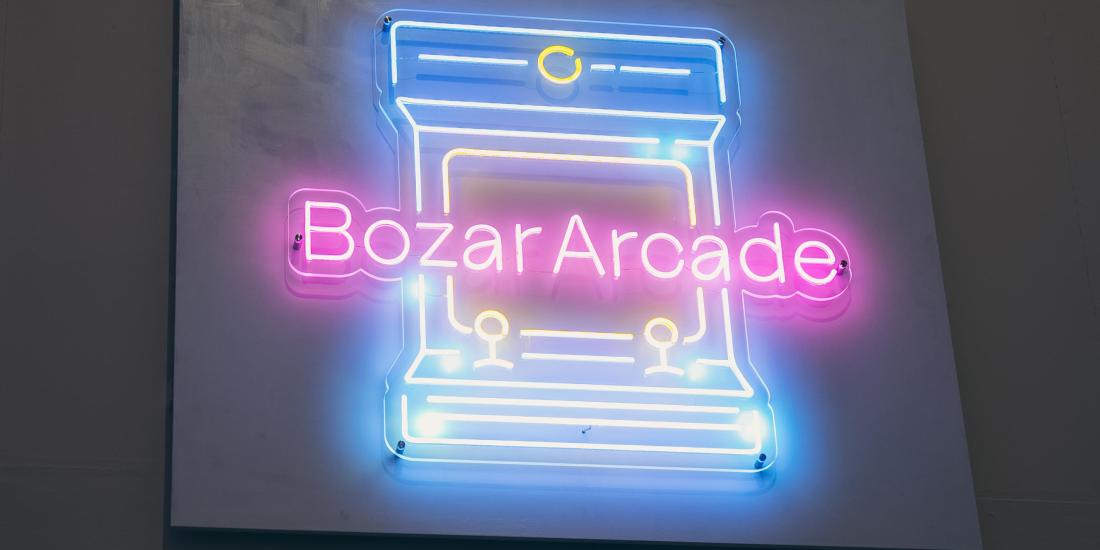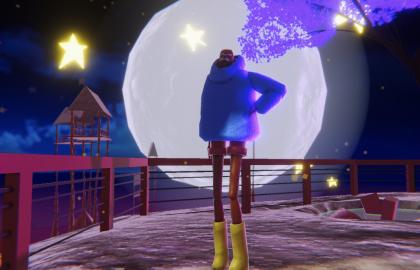“The new Bozar Arcade echoes the exhibition Love is Louder,” says digital dramatist Jafar Hejazi. “I went looking for games about love in the broadest sense.”

Brilliant Courtship
Love has evolved considerably as a theme within video games – and it is explored with a little more nuance and complexity every decade. It all began in 1987, with the comedy game Leisure Suit Larry in the Land of the Lounge Lizards, in which a double entendre spewing incel was the butt of multiple jokes. A year later, the dating simulator Romantic Encounters at the Dome featured a ‘steward’ who exhorted overly forward players to shut it. And in 1997, the role-playing game Final Fantasy VII presented the very first video game romance with Hollywood aspirations. The flirtation between the main characters Cloud and Aerith (and the tragic conclusion) coloured the teenage years of millions of millennials.
Then in 2003, Max Payne 2: The Fall of Max Payne served up a complex romance between two grieving lovers. And Mass Effect 2 picked up the theme in 2010 with a near brilliant courtship: in playable dialogue scenes, the player had to put real effort into making sure their protagonist was able to hook up with one of the other characters (m/f/x/alien). Nor should one forget the indie video game scene, which explored the theme of love from even more diverse perspectives. Obsessive infatuation in Braid (2008); the airport novel as guilty pleasure in Everlove (2014); gay men discovering their sexuality and, in a pioneering move, becoming parents in Dream Daddy (2017); toxic amorous behaviour in Boyfriend Dungeon (2021); ... The list is relatively long.
But not every title meets the criteria that Jafar Hejazi uses to select the games for Bozar Arcade. “I won’t deny that the commercial circuit has also embraced the theme in the meantime,” says the ‘games curator’. “But only in a limited way. Love is usually explored through text, which is something I try to avoid. I look for games that transcend language, but also age barriers.” Hejazi adds that commercial games are almost exclusively about romantic love. “Where are the video games about self-love? About social love? About love of family and friends?”
Queer Man Peering Into a Rock Pool.jpg is, for the co-curator, an example of something deeper. In the game, the protagonist, a middle-aged gay man, furnishes his empty house. Through this act, a reverie about sexual identity ferments in the player’s mind. “With this Bozar Arcade, I want to make people really think about love,” says Hejazi. “About how we can love ourselves as well as each other.”

Artistic Expression
Jafar Hejazi is a digital dramatist – concerned with the intersection between digital technology and artistic expression. His background often brings him into contact with ‘game engines’, the software that makes the world of a video game spin. “What interests me most is the gamification of ideas and concepts,” says the co-curator. “You can make very abstract things tangible with game mechanics.”
For the curation of Bozar Arcade, Hejazi defined several criteria. That it should be about experiences, for example, and not competition. That the games are devised by independent creators and form a canvas for artistic expression. That they be thematically relevant. That they are not merely entertaining, but also inspiring. That they do not contain extreme violence or discrimination. They do not have to imitate reality, but rather try to change it through an artistic concept. That they are, in short, art.
“Admittedly, people working on commercial games also consider their work as art,” Hejazi says. “Game designers build worlds and design experiences. But Bozar wants to go a step further. Which is what game companies would be wise to do as well, instead of just serving their core audience. At Bozar, we want to bridge the gap between – how shall I say it – the high arts and the more popular ones.”
A video game is first and foremost a simulation. And these can be very powerful and persuasive, says the digital dramatist. “Technology companies use video games to train AI bots. But that’s how it can work with humans too, or so it seems to me.”
So, can anyone attending the next Bozar Arcade be trained to become ‘better’ at love? “In a way, yes,” believes Hejazi. “What games already do very well is connect. I look for titles in which the characters connect with each other, where they collectively build a community, and thus try to understand one another. Video games are also successful at triggering emotions. Play a FIFA football game and you can’t help but get emotionally involved. With the next Bozar Arcade, I want to present video games that link that kind of emotional engagement with meaningful ideas about love and feelings.”
Bozar Arcade can be visited during Love is Louder from 12 October to 5 January.


